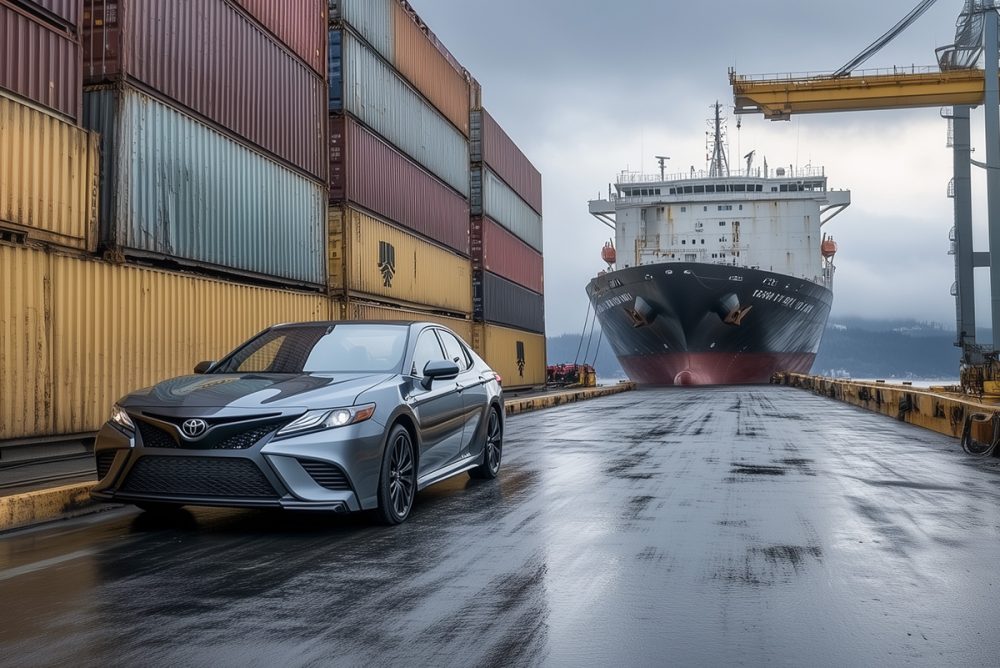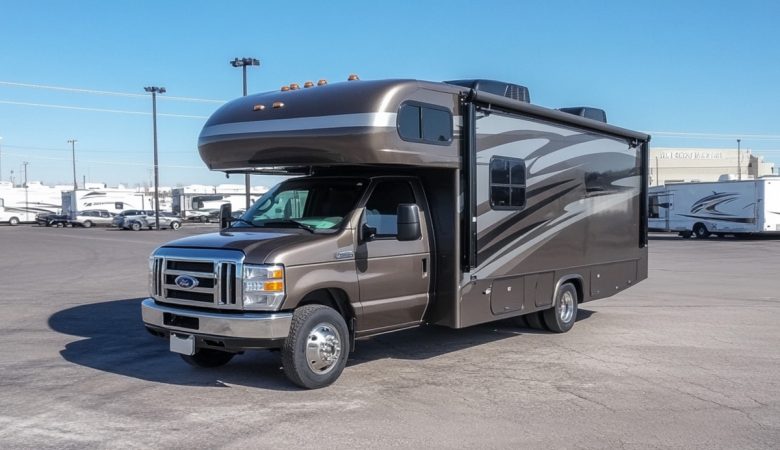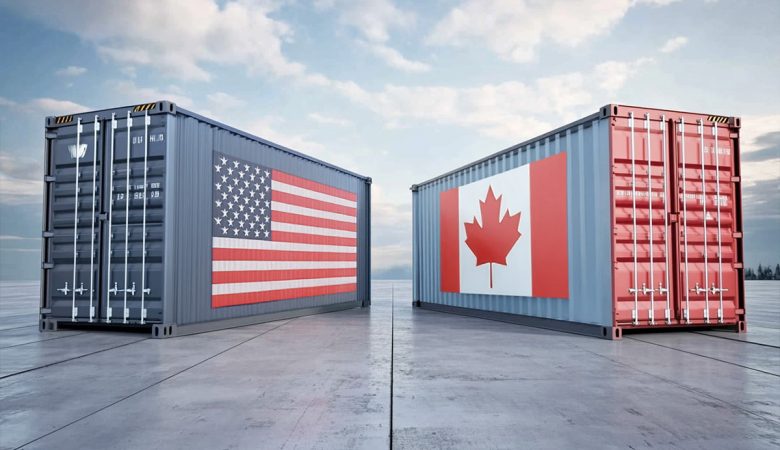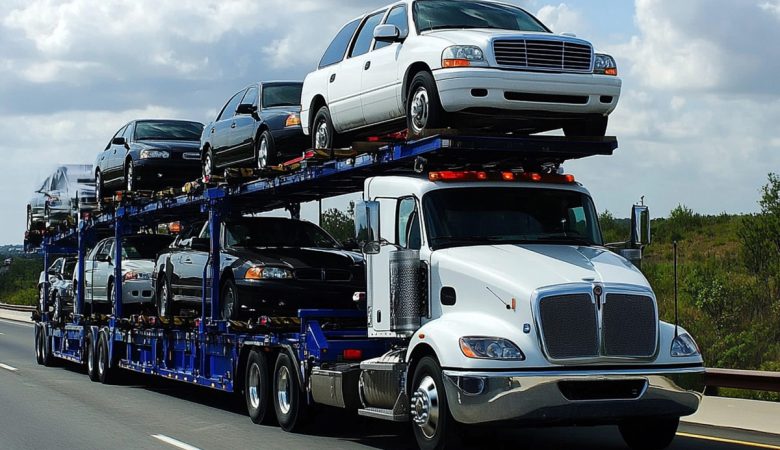Shipping goods, whether by sea, rail, or road, comes with some risks, but investing in cargo insurance can help reduce these risks. Simply put, it is necessary to insure one’s goods in the unpredictable transport industry where loss and damage of products in transit are common.
But what exactly is cargo insurance? How does it operate, and why does it matter to businesses, no matter how small they are? This article, EasyHaul will cover everything you would want to learn, from marine insurance in the case of ocean freight transport to motor truck cargo insurance for inland transportation of goods.
Furthermore, we will discuss how to control the complexities of cargo insurance coverage, how it improves your asset protection and much more. Keep reading!
What is Cargo Insurance?
Cargo insurance, or freight insurance, is coverage that insures the cargo and also the interest of the cargo against loss or damage during transport either by land, sea, or air. It generally protects your goods from the time they leave your warehouse to the time they arrive at their destination.
If businesses ship their goods nationally and abroad, it is not only useful to have cargo insurance coverage; it becomes a must.
This insurance cover protects one against unpredictable circumstances, unforeseen events, or occurrences like natural hazards or catastrophes, theft, or accidents that may be associated with the shipment of goods.
Types of Cargo Insurance
Many kinds of cargo insurance ensure protection and peace of mind, and understanding them will help you choose the best for your transportation needs. Some of the insurances include:
Marine Insurance
Marine Insurance deals with cargo that is transported through water, and it is especially useful for business people that import and export goods internationally. Nevertheless, marine insurance companies help cover ocean cargo and keep them protected once they leave the port until their arrival.
There are two categories in this form of insurance: the first is called hull insurance, which basically covers damage to the ship, while the other one is cargo insurance, which covers the goods on board the ship.
Some of the covers Marine insurance provides include:
- Total loss only (TLO): This marine insurance policy covers the complete loss of cargo that results from very extreme events.
- With average (WA): This is used to cater to any specified risks or losses that are stated.
- Free of particular average (FPA): cover expenses for one-off losses apply, not to partial losses unless causing events have been specifically met.
In the end, ocean marine insurance acts as a safety net for many risk factors such as piracy, bad weather, and even handling damages that would harm international trade.
Motor Truck Cargo Insurance
Motor truck or land cargo insurance is mainly designed for the goods that are moved by vehicles, especially trucks, either within the same country or across borders.
Among the notable features of Land Cargo Insurance are the following:
- Theft and Damage Coverage: Provides indemnity against losses incurred due to theft, accidents, and other damages in the course of transportation.
- Specified Perils: This could incorporate fire, collision, and the tip-over of the truck.
Such insurance coverage is important for firms transporting important goods, particularly through ground transportation methods. It ensures financial coverage of the items while in motion, thereby minimizing any supply chain disturbances that may occur.
Commercial Cargo or All Risk Insurance
All Risk coverage is another name for commercial cargo coverage, which covers the shipment of items over land, in the sea, or the air. It is ideal for businesses that use several modes of transport to move their goods.
Commercial cargo insurance does not just stop there as it can take care of costs that come with logistics operations, such as storage, packing & handling, and customs fees.
The two primary components include:
- All-Risk Coverage or Comprehensive Coverage: Provides coverage in relation to most risks and damages except those listed as being outside the scope of the policy.
- Named Perils Coverage: This allows for less coverage as it only contains the perils named in the policy.
It should also be stated that this insurance for cargo does not cover the following:
- Negligence-related loss or damage
- Inherent vice (e.g., wine or beer margin)
- Customs denial
- Cargo disposal
- War, strikes, riots, and civil commotions (WSRCC)
- Loss of use or market
- Underpayment
- External factors (e.g., earthquakes, pollution, invasions)
The reason for these exclusions is that they highlight risks that are either preventable, expected of the goods, or beyond the insurer’s control.
For example, neglect and inherent vice are areas that can be avoided, while customs rejection, abandonment of goods, and non-payment are beyond the insurer’s control. Also, more severe events, such as major earthquakes or wars, are examples of uninsurable risks that would prompt a more specialized type of cargo shipping insurance.
Benefits of Cargo Insurance
Cargo liability insurance has numerous advantages that would assist not only in protecting the shipments but also the overall business. For example:
Financial Protection
In cases of total loss or damage to your goods during shipping, cargo insurance will provide a reimbursement of the value of the goods. This form of coverage is important since shipping merchandise without protection exposes the business to a lot of risk.
For instance, in the case of an expensive shipment that got lost or damaged, the company will have to bear the entire weight of the loss. Fortunately, cargo coverage insurance covers these looming threats, ensuring that the company remains stable financially.
Peace of Mind
One great relief is the knowledge that your goods are insured without any fear of losing them in transit. This security, especially from marine cargo insurance coverage, is extremely helpful for business managers because it helps them relax their minds and focus on other important things.
Additionally, cargo insurance also comes with customer support that assists with making claims, which adds another layer of comfort for such unfortunate incidents.
Compliance with Regulations
There are many nations and shipping companies that have rules that demand businesses trading internationally to have cargo insurance. Having adequate coverage helps avoid such legal hurdles by ensuring that the shipments conform to this and other types of customs laws.
Also, the fact that the companies are compliant with regulations helps in ensuring that customs procedures are easier with minimal delays, thereby increasing efficiency.
Factors to Consider When Choosing Cargo Insurance
Businesses can find the best shipping container insurance policy by looking at certain factors. These factors will ensure that the chosen coverage is the best value for money. Here’s how to make the right choice:
Coverage Options
When getting freight insurance, the most important factor is ensuring that the policy meets the specific types of goods you are shipping as well as the transportation methods being utilized.
For instance, whether one is shipping electronics or perishable or hazardous materials, the insurance should protect those goods that are exposed to risks of a unique nature.
Also, take into account the routes and modes of transport used, whether it is land, water, or air. Different modes of transportation come with risks naturally, and the cargo insurance policy must make provisions to arrange these risks.
Reputable Insurance Companies
It is essential to look for marine insurance and cargo insurance brokers who have a history of positive client reviews as well as a good image in the market. To be on the safe side, consider established companies as they are more experienced and have policies that meet your specific requirements.
Also, ensure to check the financial stability of the company as a bankrupt or struggling establishments in a booming industry is a glaring red flag.
Cost of Insurance
Generally, the amount paid towards insurance for cargo is inconsistent as it is determined by several factors like the value of the goods, the journey and the coverage used. Therefore, it’s best to contact different companies, ask for a quote, compare cost vs benefits, and make your pick.
Also note that most of the time, going for the cheaper policy options may not be the best way to go as they may not incorporate adequate coverage.
Claims Process
It is always important to understand and review the claim process before taking any policy. Being able to file claims seamlessly is a very crucial factor when it comes to filing for a claim. If possible, go for cargo insurance companies with little to no complaints regarding slow claim processes.
Also, check the claim filing process, the documentation required, and the time taken for settling the claim. When the claim process is largely uncomplicated, it can reduce anxiety and uncertainty in a period that is already proving to be difficult.
*Note: Consider how easy it is to get in touch with customer representatives and the assistance they could give regarding claim filling when needed.
Conclusion
In this regard, cargo insurance is a very important component for businesses while transporting to tackle some of the risks involved in the transportation of goods.
Once companies understand the types of cargo insurance available, coverage features, follow the appropriate insurers, and claims processes, they can protect their business interests sufficiently.






Leave a Reply
You must be logged in to post a comment.